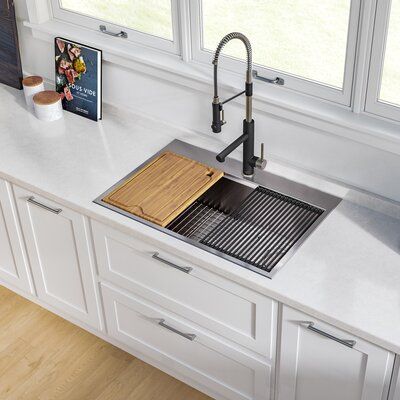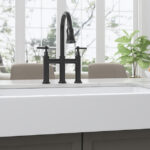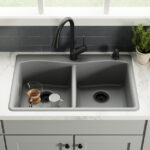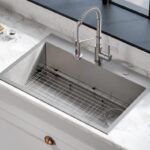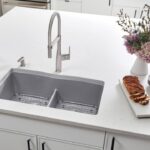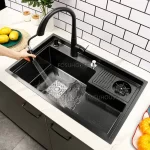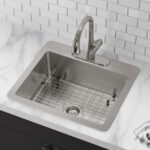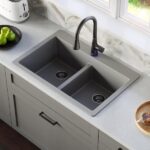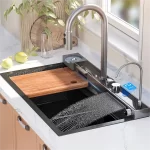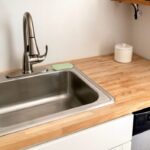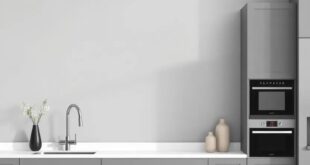The kitchen sink is an essential fixture in any kitchen. It is used for washing dishes, preparing food, and cleaning various kitchen items. A good quality sink can make your kitchen more functional and efficient, while a poorly maintained or outdated sink can be a hindrance to your daily kitchen tasks.
There are several types of kitchen sinks to choose from, including stainless steel, porcelain, cast iron, and composite granite. Stainless steel sinks are popular due to their durability, resistance to stains, and ease of cleaning. Porcelain sinks have a classic look and are easy to keep clean, but they are more prone to chipping and scratching. Cast iron sinks are heavy-duty and durable, but they require regular maintenance to prevent rusting. Composite granite sinks are a newer option that combines the durability of granite with the versatility of composite materials.
When choosing a kitchen sink, consider the size of your kitchen and the amount of counter space available. A larger sink may be more convenient for washing dishes and filling large pots, but it can take up valuable counter space. Double-bowl sinks are popular for their versatility, allowing you to wash dishes in one bowl while rinsing them in the other. Single-bowl sinks are more compact and are ideal for smaller kitchens.
In addition to the type and size of the sink, consider the installation method. Top-mount sinks are the most common and are easy to install in most countertop materials. Undermount sinks are mounted beneath the countertop for a sleek, seamless look, but they may require professional installation. Farmhouse sinks are a popular choice for vintage or country-style kitchens, with their deep bowls and apron front design.
Proper maintenance is essential to keep your kitchen sink looking and functioning its best. Regularly cleaning the sink with a mild detergent and a soft cloth can prevent stains and mineral deposits. Avoid using abrasive cleaners or scrubbers, as they can scratch the sink’s surface. To prevent clogs, avoid washing large food scraps down the drain and use a sink strainer to catch debris.
In conclusion, the kitchen sink is an important element of any kitchen. Choosing the right sink for your needs and maintaining it properly can make a big difference in the functionality and appearance of your kitchen. Consider the type, size, and installation method that works best for your kitchen, and enjoy the convenience and efficiency of a well-designed sink.
 Decorationg Interior Design
Decorationg Interior Design
